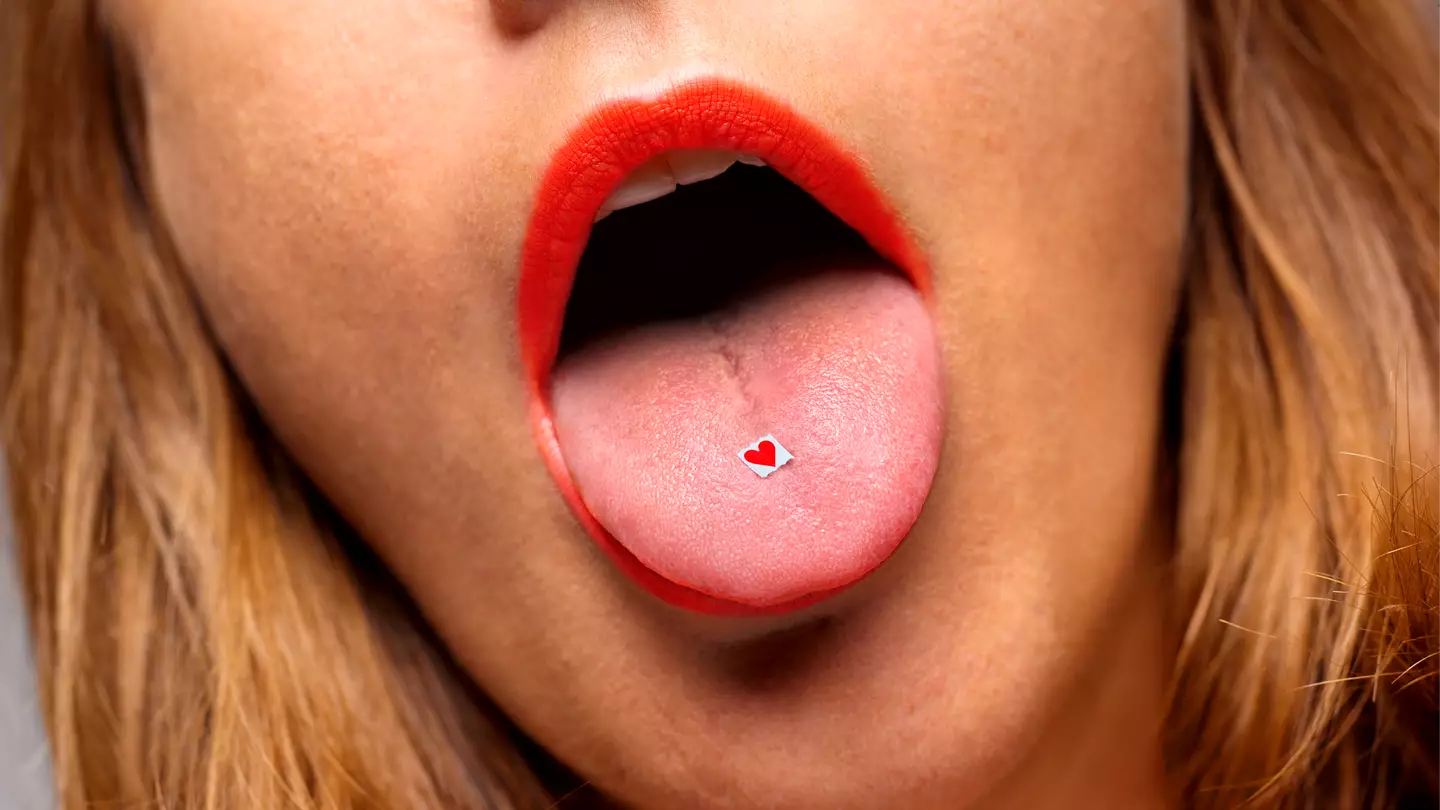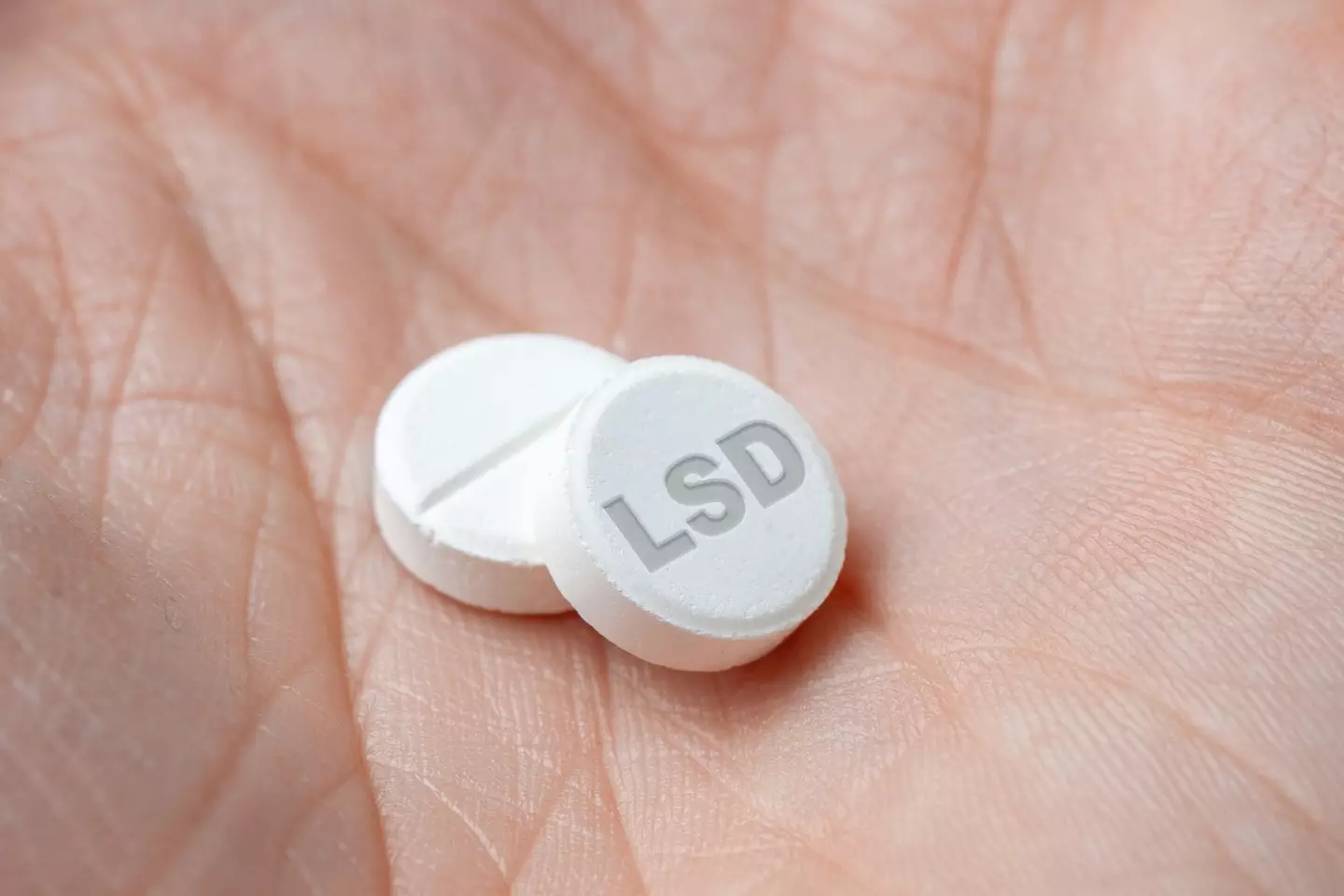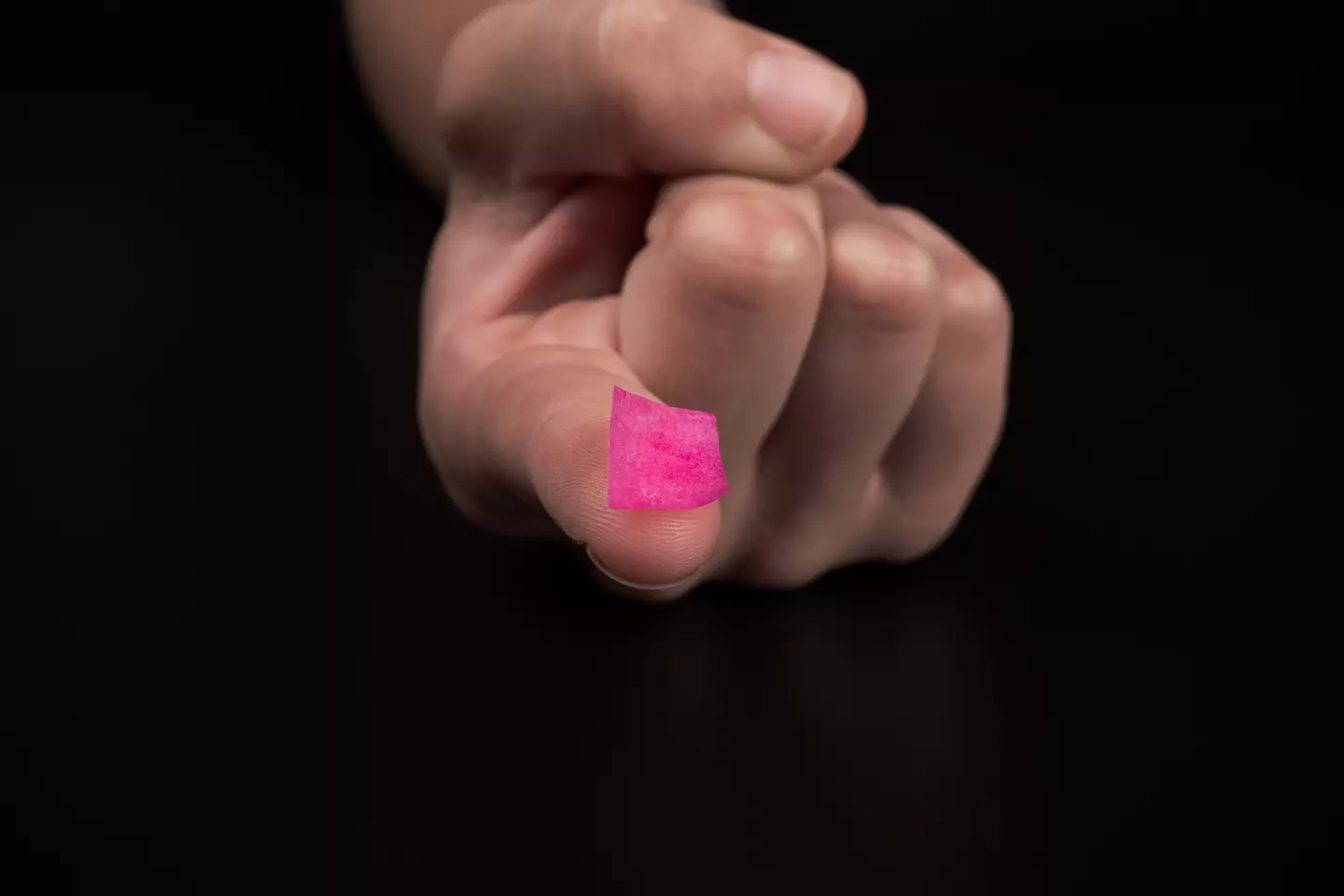
A woman once accidentally overdosed on over 1,000 mcg of LSD at a party and experienced some huge changes in her life afterwards.
The incident took place in 2000 at summer solstice party, and the user was just 15 years old when it happened.
For reference, the normal recreational dosage of LSD is 100 mcg, meaning the teenager had gone more than 10 times over the limit.
Though, it could have been worse, given some unlucky users have previously taken 550 times the average amount by accident.
Advert
The findings and recollection of events were gathered through interviews with the woman (AV), her father, the drug supplier, records and documents from the hospital and emergency department, as well as case notes from the mental health team.
All the information was shared in the Journal of Studies on Alcohol and Drugs, in January 2020.

What does LSD do to your body?
LSD, short for lysergic acid diethylamide, is a hallucinogenic drug that usually appears in blotter paper form, though it can also be presented as a liquid or pellet.
Users experience a distorted world, according to Talk to Frank, altering the way that people experience sounds, colours, objects, and even their sense of distance, space and time.
While it can bring on a sense of euphoria, the drug can cause hallucinations, paranoia, panic, fear, and confusion by altering brain chemistry.
Talk to Frank further notes that there is a sense of 'unpredictability' when it comes to the drug, as it 'feeds off your imagination so every person’s experience is unique'.
While it could take between 20 minutes and two hours to kick in, the amount taken can speed up or slow down this process.
Trips can last up to 12 hours with an 'afterglow' phase, with users also experiencing phenomena like 'hearing' colours or 'seeing' sounds, while emotions can be heightened.

What happened to AV during the trip?
Prior to the overdose, AV had a history of drug use and mental health problems, having been diagnosed with bipolar type II disorder following a number of hypomanic symptoms such as hallucinations, obsessive behaviours, and hearing voices in her head.
In the past, she regularly used cannabis, infrequently used mushrooms, and also tried LSD and ecstasy.
But on 20 June 2000, AV was at a summer solstice party, where the supplier made an error with decimal places, pouring out individual dosages in glasses of water, meaning that intended dosages of 100 mcg (around average) became 1,000 mcg.
The woman drank the glass and leftovers from other glasses, meaning the dosage was between 1,100 - 1,200 mcg, taken on an empty stomach.
People around her reported 'erratic behaviour' for six and a half hours, followed by an apparent seizure, with an ambulance called soon after.
But by the time the paramedics had arrived, she was 'alert and oriented'.
This recollection has been questioned though, as AV didn't lose control of her bladder or bowel, nor did she bite her tongue or carry out any clonic movements.
It is unclear if she had lost consciousness, or if she was just so intensely engrossed with the experience at the time, though according to a study by Fisher & Undegerleider in 1967, grand mal seizures after LSD ingestion are possible.

What effects did the LSD have afterwards?
AV's dad remembered walking into the hospital room where she was the next morning, with the teenager simply saying 'it's over'.
She was referring to her bipolar disorder, which seemingly was alleviated.
It seemed that the hallucinogenic had helped her get rid of her mental health illness, with her psychiatrist and therapist documenting her progress over the years.
By July that year, it was noted that she 'came in today with a lovely fine balance and a glint in her eye and she is maintaining a happy and credible mood balance ever since the unfortunate incident that provoked her seizure three weeks ago'.
Presenting as 'easy and healthy', she was soon described as 'entirely stable'.
Staying stable for months, by 2001, it was decided that AV would go off her lithium medication that she had been on for years prior, with 'no evidence of clinical hypomania or depression'.
Her father noted that she'd recovered completely from her mental health concerns following the shock overdose incident.
AV herself then reported that she had no mental health issues for 13 years, until she gave birth and went through postpartum depression, while the birth of her second child in 2017 also brought on a period of high emotion.
She further noted that her brain felt 'chemically unbalanced' before the overdose, though it now feels 'normal'.
While she continues to regularly use cannabis, AV has 'stable employment, stable positive friendships, and good work relationships.'
The LSD overdose seemingly improved mood symptoms and bettered reductions in mania with psychotic features, for over 20 years running.
If you want friendly, confidential advice about drugs, you can talk to FRANK. You can call 0300 123 6600, text 82111 or contact through their website 24/7, or livechat from 2pm-6pm any day of the week
Topics: Drugs, Mental Health